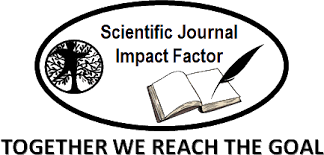A World of Change: A Study of Human and Climate Elements
Keywords:
change, climate, environment, fictionAbstract
The present study explores the current state of our planet and society as interdependent systems and their evolution in Anthropocene and Post-Anthropocene. The current essay initiates from the actual situation of Earth and Human society and continues with the interrelated future of ecosphere and non-biotic elements, referring to historical, geographical and biological facts, as well as to climate fiction. The increasing concern of environmentalists regarding the evolution of our planet in relation to human activity represents the starting point of this article. Climate change, human migrations and their representations in world literature are other main topics of the analysis. As we can notice the present changes in the surrounding space due to anthropic activity, climate fiction offers us new perspectives of the future, possible ways in which the Earth can evolve. The analysis will make use of the methods and instruments provided by Humanities and Social Sciences and try to study different factors related to climate and humans.
References
Albrecht, Glenn. 2016. “Exiting the Anthropocene and Entering the Symbiocene”, in Minding Nature, 9 (2).
Albrecht, Glenn. 2019. Earth Emotions. Ithaca & London: Cornell University Press.
Angus, Ian. 2016. Facing the Anthropocene: Fossil Capitalism and the Crisis of the Earth System. Forword by John Bellamy Foster. New York: Monthly Review Press.
Atwood, Margaret. 2011. Dire Cartographies: The Roads to Ustopia‒The Handmaid’s Tale and the MaddAddam Trilogy. New York: Vintage Books.
Ciavarella, Andrew; et alii. 2020. Prolonged Siberian Heat of 2020. https://www.worldweatherattribution.org/siberian-heatwave-of-2020-almost-impossible-without-climate-change/
Crutzen, Paul J. 2002. “Geology of Mankind”, Nature, 415: 23.
Dalai Lama; Alt, Franz. 2020. Our Only Home: A Climate Appeal to the World. London & New York: Bloomsbury Sigma.
D’Avanzo, Charlene. 2018. “Climate Fiction as Environmental Education”, in Bulletin of the Ecological Society of America, vol. 99, issue 4, October 2018. https://doi.org/10.1002/bes2.1446
Davies, Jeremy. 2016. The Birth of the Anthropocene. Oakland: University of California Press.
Eliade, Mircea. 1959. The Sacred and the Profane: The Nature of Religion. Translated from French by Willard R. Trask. New York: Harcourt, Brace & World.
Geiger, Sonja; et alii. 2018. “Mindfully Green and Healthy: An Indirect Path from Mindfulness to Ecological Behaviour”, in Frontiers in Psychology, 18 January 2018. https://doi.org/10.3389/fpsyg.2017.02306
Parikka, Jussi. 2018. “Anthropocene”, in Rosi Braidotti and Maria Hlavajova (eds), Posthuman Glossary. London & New York: Bloomsbury.
Schwägerl, Christian. 2014. The Anthropocene: The Human Era and How It Shapes Our Planet. Foreword by Paul J. Crutzen. Translated from German by Lucy Renne Jones. Santa Fe & London: Synergetic Press.
Wolfe, Cary. 2010. What is Posthumanism?. Minneapolis & London: University of Minnesota Press
Downloads
Published
Issue
Section
License

This work is licensed under a Creative Commons Attribution 4.0 International License.
User Rights
Under the Creative Commons Attribution-NonCommercial 4.0 International (CC-BY-NC), the author (s) and users are free to share (copy, distribute and transmit the contribution).
Rights of Authors
Authors retain the following rights:
1. Copyright and other proprietary rights relating to the article, such as patent rights,
2. the right to use the substance of the article in future works, including lectures and books,
3. the right to reproduce the article for own purposes, provided the copies are not offered for sale,
4. the right to self-archive the article.












